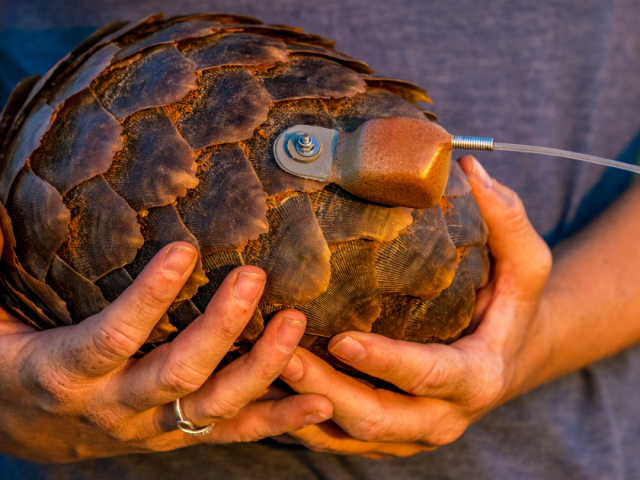A recent commentary by Renato A. F. de Lima and 25 colleagues from a range of countries presents a call for recognising the massive intellectual, financial, and personal investment made by people collecting field ecological data globally. They argue that the international push to make forest plot data “FAIR” (Findable, Accessible, Interoperable, Reusable) has made the situation more UNFAIR, by degrading the rights and opportunities of those who invested in collecting the data.
Open environmental and biological data are necessary for making progress on some of the biggest developmental challenges facing us today, enabling high quality, ground-breaking science. The value of collecting data in interactive ways and sharing it via networks and data platforms has produced a step-change in the way we do science and, in turn, the way we approach land use planning and conservation.
However, as the authors of the paper eloquently argue, these benefits are predominantly and most visibly accrued in the developed world, where the skills, technology, and capacity to make use of these data largely reside. Consequently, “the most vocal proponents of making tropical and subtropical forest data open are often not those who actually measure and monitor them” and “the risks and costs involved in acquiring and sustaining ground forest data are persistently overlooked, ignored, or regarded as externalities”.
As a researcher in Africa who has spent decades contributing data to global networks many of their arguments ring true, and the paper proposes several solutions that might ameliorate this power imbalance. These include creating expectations that international funders and principal investigators (PIs) take on more of the costs of collecting the data (like the overhead costs of institutions) and ensuring that data collectors are included as authors in journal papers.
However, I was surprised the argument stopped there. Of course African researchers collecting data should be recognised and paid for this important job, not only for social justice reasons but because it will result in better quality data. However, we should also be enabled to join the table on the data analysis and idea-generation side as equal partners.
It is rare (even in Europe and the US, but more so in Africa) to find someone who has a passion for field work and aptitude in big data analysis. What the article misses is that to be truly fair, these open data activities and networks should be looking beyond enabling their field collaborators at field sites and toward enabling the human resources of the country in general.
A Eddy-Covariance tower (which collects meteorological data) has operated in the Kruger National Park since 2000 and has contributed data for at least 250 publications. I could find only 12 of these to have African co-authors from the institution that has been responsible for collecting the high resolution dataset for 22 years (often funding it with resources from the South African Department of Science and Technology).
When I was listed as the PI for this site, the standard emails sent daily to my inbox inviting me to contribute “intellectually” to a paper being written with these data became more of an irritant than an opportunity. It salves the consciences, and ticks reporting boxes for the scientists hoping to write their high-impact paper with our data, but either we don’t feel competent to contribute “intellectually” or we are simply too busy planning our next two-week data collection field campaign to sit down and focus on analysis. And unfortunately, we don’t have an office full of ambitious, well-trained post-doctoral students eager to use the data we so painstakingly collect.
For me and my colleagues, although we do appreciate financial investment in our institutions and co-author offers, what really stops us from benefiting from open access to the data we produce is a lack of human resources able to work with the full dataset.
Whose responsibility is it to build this capacity? Already the science councils in countries that fund (and house and gain credibility from) these networks baulk at funding even the overhead expenses of the institutions in countries producing the data. How could we convince them that it is their responsibility to help produce data-savvy scientists in other countries to share in the benefits involved?
One approach would be to insist that project and database management activities be housed in some of the countries that provide the data, where to succeed they would require massive injections not only of money, but capacity building in IT and quantitative skills. It would also have the additional spin-off of giving African scientists a sense of ownership over the process, which might encourage more of us to use and benefit from the data.
Another approach that I have benefited from are international funding opportunities that provide me and my lab with intellectual independence: The USAID PEER programme and the Royal Society Newton Fellowship enabled me to take ownership of long-term research projects and build regional networks in a way that would never have been possible otherwise.
More recently, we have been funded by Oppenheimer Generations Research and Conservation’s Future Ecosystems for Africa Programme to develop credible, strong, African contributions to the development agenda through harnessing data, knowledge, and partnerships within the continent. These programmes are rare – the current push is for massive, multi-national partnerships between the global north and global south, where the roles, responsibilities and independence of different partners get lost and all project management resides in the funding countries.
However, even if the financial and institutional arrangements were in place to drive a big-data revolution in Africa, making progress here ultimately requires a different sort of investment from our international collaborators. It requires colleagues who are willing to sacrifice producing a quick, efficient product with their highly trained graduate students for the sake of giving the work to someone with fewer skills and less confidence who will need more guidance and mentorship. It requires colleagues who are willing to listen to the research ideas of African scientists and put energy and time into participating in scientific enquiry driven by people with a very different research agenda.
We in Africa need to come to the table and play our part too. We must find our own scientists with quantitative skills and persuade them that a career in environmental science can be rewarding. We need to speak out when joint project proposals are being submitted – insisting on resources for data training workshops and quantitative capacity building. Importantly, we need to see these large-scale plot networks and databases as tools that can be used by us within our own contexts, to ask questions and move forward on issues relevant to us, and demand that our collaborators help us to do this.
My Tanzanian colleague recently, when discussing these issues, likened himself to a hunter sitting in a hole, receiving small pieces of meat from the active hunters on the surface. He wondered how he could move himself beyond scavenging and into a position of control. He realised that partly it was a sense of comfort and expectation that kept him there.
- Africa now emits as much carbon as it stores: landmark new study - April 15, 2024
- Take the money? A conundrum for African biodiversity and climate negotiators - December 6, 2023
- Making Open Data Work for Africa - May 13, 2022
Additional News
Pangolins are elusive and heavily trafficked. At Tswalu, researchers are working to uncover their secrets and aid conservation.
Declining Sparrow-Weavers may threaten other birds that rely on their old nests for shelter.





